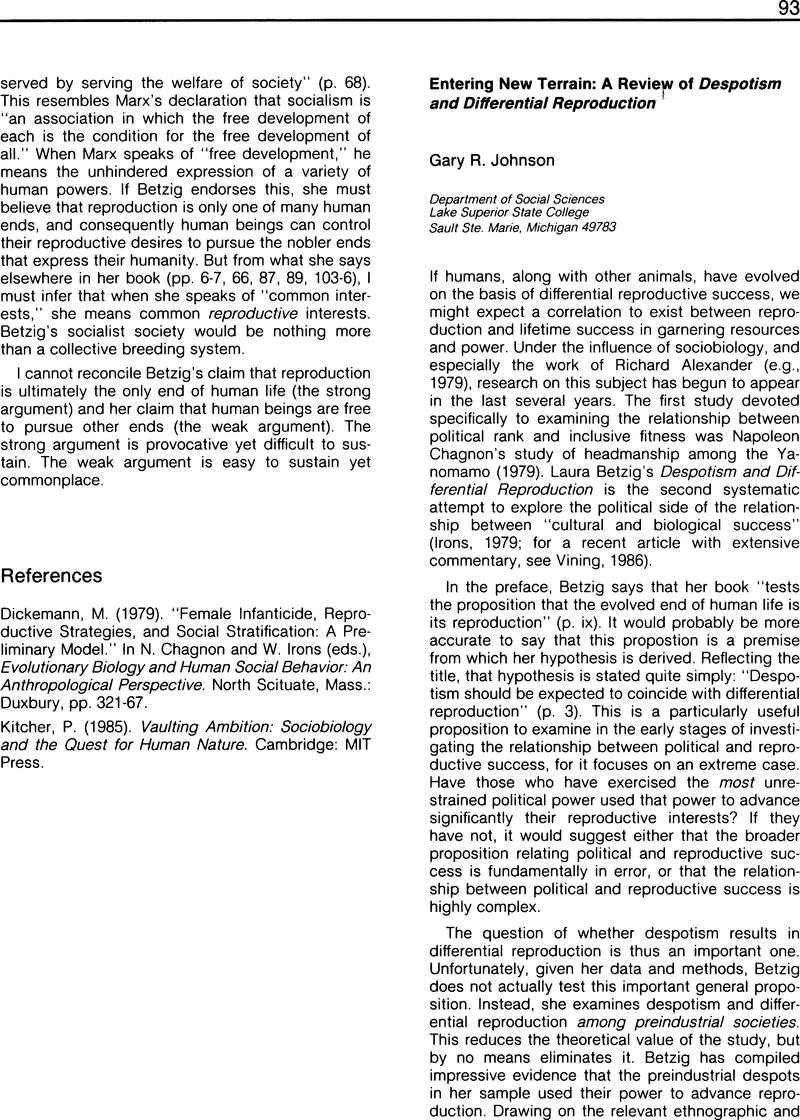No CrossRef data available.
Article contents
Entering New Terrain: A Review of Despotism and Differential Reproduction
Published online by Cambridge University Press: 17 May 2016
Abstract
An abstract is not available for this content so a preview has been provided. Please use the Get access link above for information on how to access this content.

- Type
- Book Reviews
- Information
- Copyright
- Copyright © Association for Politics and the Life Sciences
References
Alexander, R. D. (1979). Darwinism and Human Affairs. Seattle: University of Washington Press.Google Scholar
Chagnon, N.A. (1979). “Is Reproductive Success Equal in Egalitarian Societies?” In Chagnon, N.A. and Irons, W. (eds.), Evolutionary Biology and Human Social Behavior: An Anthropological Perspective. North Scituate, Mass.: Duxbury Press, pp. 373–401.Google Scholar
Irons, W. (1979). “Cultural and Biological Success.” In Chagnon, N. A. and Irons, W. (eds.), Evolutionary Biology and Human Social Behavior: An Anthropological Perspective. North Scituate, Mass.: Duxbury Press, pp. 257–272.Google Scholar
Johnson, G. R. (1986). “Kin Selection, Socializaiton, and Patriotism: An Integrating Theory.” With commentaries and author's response. Politics and the Life Sciences 4 (2): 127–154.Google Scholar
Losco, J. (1981). “Ultimate vs. Proximate Explanation: Explanatory Modes in Sociobiology and the Social Sciences.” Journal of Social and Biological Structures 4: 329–346.Google Scholar
Vining, D. R. Jr. (1986). “Social Versus Reproductive Success: The Central Theoretical Problem of Human Sociobiology.” With commentaries. Behavioral and Brain Sciences 9: 167–216.Google Scholar
de Waal, F. (1982). Chimpanzee Politics: Power and Sex Among Apes. New York: Harper and Row.Google Scholar


